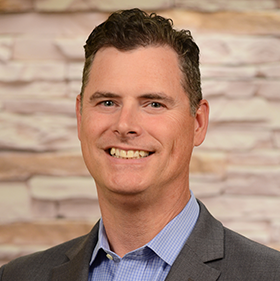Voluntary Benefits
Published by Rick Cronin on December 9th, 2020
Have you ever had bad pizza? Well, maybe you believe there’s no such thing, so a better question might be: have you ever had great pizza? When you think about it, what made the pizza great versus bad (or just “good”)? For the most part, it’s all the same ingredients: bread, cheese, pizza sauce, seasonings and toppings. Now, I’m no culinary expert, but I’m willing to bet that the difference between bad pizza and great pizza is in the details. Maybe a few higher quality ingredients? A little extra detail to preparation? A slight change in the seasonings?

In that sense, voluntary benefits are a lot like making a pizza. In large part, carriers are offering similar end products with relatively similar services to support those products. While many of the ingredients for voluntary (products, administration, enrollment) are the same, the key to a great voluntary experience is often in the small details that you do (or don’t) get right. Here are a few of the little things that I’ve found go a long way to making a great customer experience for my broker and employer partners:
Respond to calls/emails/texts in 24 hours
This is a classic “small thing” that goes a long way. Responsiveness is critical. Even if it’s just to acknowledge their message, it lets clients know you have their back and they can count on you. More importantly, it establishes trust between you and your client which is crucial for effective voluntary benefit solutions. Responding quickly is also about a larger goal of establishing open communication between yourself and your clients.
This may be less visible to the client, but responding quickly and acknowledging inquiries or requests also helps you hold yourself accountable. It forces you to set deadlines, act quickly and respond to a client’s issue – all of which help build a better benefits experience.
Learn to say no
I get how hard saying “no” can be. I’m a salesperson, we always want to keep clients happy – it’s how we earn business. But, saying “no” is pretty simple and, more than that, beneficial. Sometimes an answer a client doesn’t want to hear is the answer they need to hear for long-term success. Whether it’s telling them “no, I don’t think that’s the right benefit for your employees” or “no, we can accommodate that request in that timeframe” saying no will pay dividends in the long run by setting realistic expectations and establishing a way to have more honest conversations with clients
Own it if it goes wrong
No one likes it when things go wrong, but it happens. And, when it does, it’s easy to point fingers, but it’s better to own it and act decisively. Not that I ever hope for things to go wrong, but sometimes when things go wrong it gives you an opportunity to create a positive customer experience. How you respond to challenges goes a long way to proving yourself to your customers. Take accountability, take action and you’ll set yourself up for more fruitful, more productive relationships in the world of voluntary benefits.
Pause so you can think big
It’s easy to get tunnel vision on the tasks immediately in front of you. I always recommend taking a little time to try and pause and look at the big picture. That’s the simple thing to do, just pause and think bigger picture for your clients. It’s easy to get focused on the enrollment in front of you. But voluntary benefits are tough to manage; once a case is sold or an enrollment is complete, you have to be involved to see it through – making sure ben admin is running smoothly, billing is accurate and timely. So make sure you’re taking time to stop and think through the entire process; make sure it’s set up for success. You can also pause to take a long-term approach to how you implement new benefits year over year
Employee communication – make it personal and purposeful
I wouldn’t necessarily call employee communication a “little thing”. It’s a big deal and it needs to be done right. And, that’s where you can do little things that will go a long way. Sure, benefit booklets and an email announcement are a start, but doing a little extra here is in everyone’s best interest. Take a little extra time and plan a multi-part campaign or go a little further to add an element of one-on-one support for employees. Time and again, I’ve seen a little extra go a long way to making enrollments personal and purposeful.
In joining Trutsmark, I was immediately drawn to their company tagline: benefits beyond benefits. That, there, is exactly the kind of attitude that resonates with me - doing something extra to make a big difference. Sure, there are huge gestures you can make as an individual or as an organization to go beyond, but you can only realistically do those every so often. It’s also about the little day-to-day things that add up to create better relationships and better experiences for clients.

In that sense, voluntary benefits are a lot like making a pizza. In large part, carriers are offering similar end products with relatively similar services to support those products. While many of the ingredients for voluntary (products, administration, enrollment) are the same, the key to a great voluntary experience is often in the small details that you do (or don’t) get right. Here are a few of the little things that I’ve found go a long way to making a great customer experience for my broker and employer partners:
Respond to calls/emails/texts in 24 hours
This is a classic “small thing” that goes a long way. Responsiveness is critical. Even if it’s just to acknowledge their message, it lets clients know you have their back and they can count on you. More importantly, it establishes trust between you and your client which is crucial for effective voluntary benefit solutions. Responding quickly is also about a larger goal of establishing open communication between yourself and your clients.
This may be less visible to the client, but responding quickly and acknowledging inquiries or requests also helps you hold yourself accountable. It forces you to set deadlines, act quickly and respond to a client’s issue – all of which help build a better benefits experience.
Learn to say no
I get how hard saying “no” can be. I’m a salesperson, we always want to keep clients happy – it’s how we earn business. But, saying “no” is pretty simple and, more than that, beneficial. Sometimes an answer a client doesn’t want to hear is the answer they need to hear for long-term success. Whether it’s telling them “no, I don’t think that’s the right benefit for your employees” or “no, we can accommodate that request in that timeframe” saying no will pay dividends in the long run by setting realistic expectations and establishing a way to have more honest conversations with clients
Own it if it goes wrong
No one likes it when things go wrong, but it happens. And, when it does, it’s easy to point fingers, but it’s better to own it and act decisively. Not that I ever hope for things to go wrong, but sometimes when things go wrong it gives you an opportunity to create a positive customer experience. How you respond to challenges goes a long way to proving yourself to your customers. Take accountability, take action and you’ll set yourself up for more fruitful, more productive relationships in the world of voluntary benefits.
Pause so you can think big
It’s easy to get tunnel vision on the tasks immediately in front of you. I always recommend taking a little time to try and pause and look at the big picture. That’s the simple thing to do, just pause and think bigger picture for your clients. It’s easy to get focused on the enrollment in front of you. But voluntary benefits are tough to manage; once a case is sold or an enrollment is complete, you have to be involved to see it through – making sure ben admin is running smoothly, billing is accurate and timely. So make sure you’re taking time to stop and think through the entire process; make sure it’s set up for success. You can also pause to take a long-term approach to how you implement new benefits year over year
Employee communication – make it personal and purposeful
I wouldn’t necessarily call employee communication a “little thing”. It’s a big deal and it needs to be done right. And, that’s where you can do little things that will go a long way. Sure, benefit booklets and an email announcement are a start, but doing a little extra here is in everyone’s best interest. Take a little extra time and plan a multi-part campaign or go a little further to add an element of one-on-one support for employees. Time and again, I’ve seen a little extra go a long way to making enrollments personal and purposeful.
In joining Trutsmark, I was immediately drawn to their company tagline: benefits beyond benefits. That, there, is exactly the kind of attitude that resonates with me - doing something extra to make a big difference. Sure, there are huge gestures you can make as an individual or as an organization to go beyond, but you can only realistically do those every so often. It’s also about the little day-to-day things that add up to create better relationships and better experiences for clients.
Start a conversation with the team that does the little things right:
